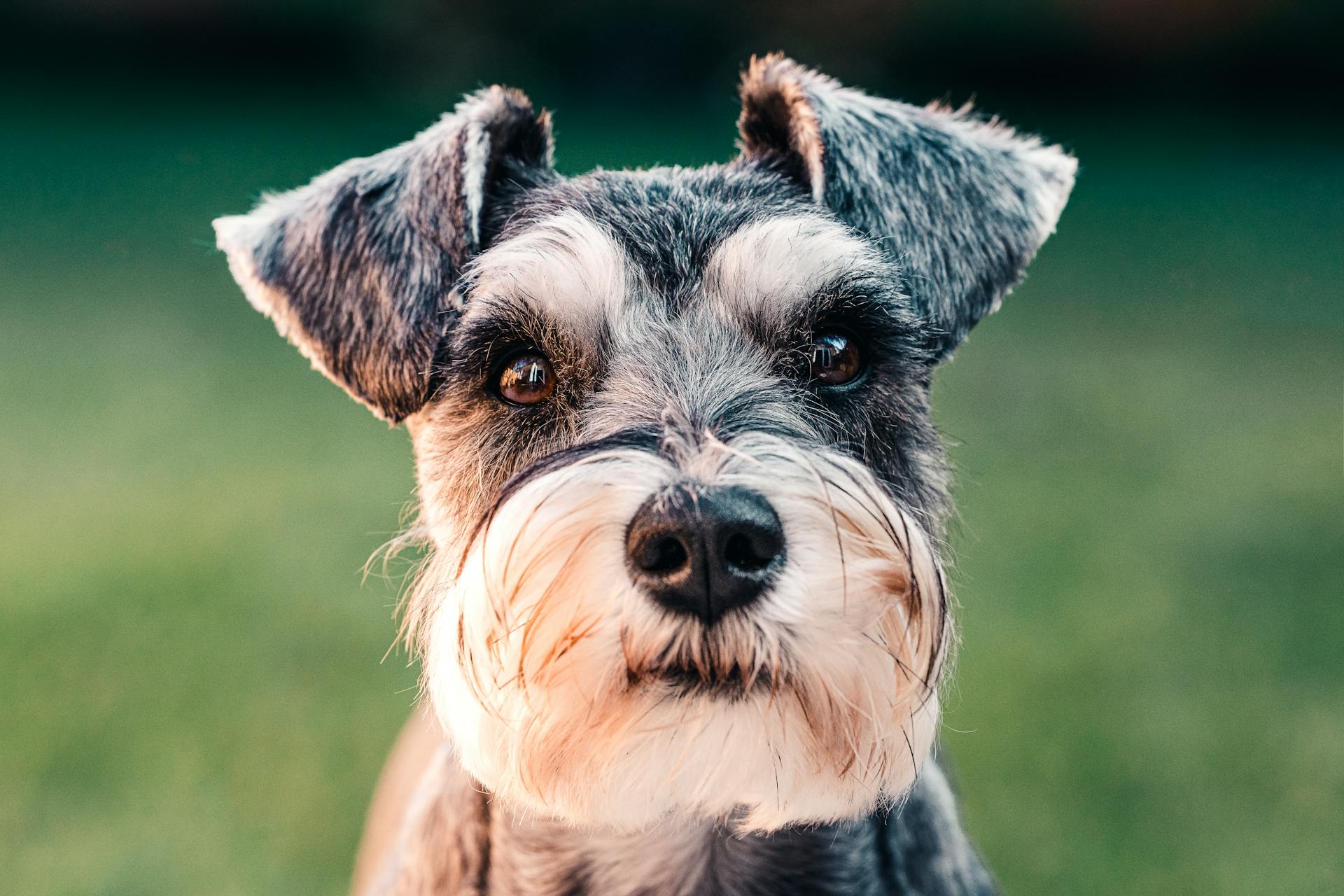
Dog show judges are experts in canine conformation and behavior, responsible for evaluating the physical and temperamental characteristics of dogs in a fair and impartial manner. They are usually experienced breeders, owners, or handlers who have a deep understanding of dog breeds and their characteristics.
To become a dog show judge, one typically needs to have a strong background in dog breeding, ownership, or handling, and must have a good understanding of the breed standard. They must also be able to communicate effectively and make decisions based on the dog's appearance, movement, and temperament.
Dog show judges work closely with kennel clubs, breed associations, and other organizations to ensure that the judging process is fair and consistent. They must also follow a set of rules and guidelines that govern the judging process.
Broaden your view: Best Time to Breed a Dog
Judges
Nancy Smith Hafner, a seasoned judge, has been involved with the American Kennel Club for over 40 years.
She was born in Indiana and has lived in various places, including Tuscumbia, Alabama, where she has resided for 34 years.
Nancy judges the Terrier, Toy, and Non-Sporting Groups, Best in Show, and her Permit Breeds, Boxers and Mastiffs.
She has been judging since 1998, initially starting with Poodles, and has also judged the Poodle Club of America National; the Miniature Variety in 2000.
Judging Criteria
Judges in dog conformation shows compare each dog to the idealized version of its breed, not to other dogs.
The idealized version of a breed is defined by written standards that address various body parts and attributes.
These standards include balance, weight, size, eyes, ears, head, muzzle, whiskers, teeth, tail, shoulders, legs, coat, and color.
A judge will use his hands to inspect the dog's body, including its bones and muscles.
Judges assess the dog's walk (gait) and attitude, which can be specific to the breed, such as cheerful for beagles or proud for poodles.
The American Kennel Club (AKC) has assembled these criteria for each of their recognized breeds.
Here are some of the key criteria used to judge dogs in conformation shows:
- Balance: overall appropriate proportions in size
- Weight
- Size
- Eyes: color, size, shape
- Ears: shape, length, position
- Head: shape
- Muzzle: shape, length
- Whiskers: thickness
- Teeth: kind of bite (e.g. level or scissors bites)
- Tail: how it arches and sets (e.g. how high or low)
- Shoulders: bone, muscle
- Legs: muscles, stance, proportionality
- Coat: texture, length
- Color: accepted breed colors
Judges
Judges can be granted a license by a breed association or a kennel club, which specifies the breeds they are qualified to judge.
A judge's qualifications can be earned by studying and applying for a license to judge a single breed, multiple breeds, or all recognized breeds.
Consider reading: Does My Dog Judge Me

To become a group judge, a person must successfully complete the requirements for judging all of the dog groups.
A judge who is licensed to judge all breeds is often referred to as an "all-rounder".
Judges may also be qualified by their membership and participation in a National-based organisation.
Nancy Smith Hafner, a judge, has been involved with the American Kennel Club for over 40 years, learning from influential breeders and handlers along the way.
Judges like Nancy Smith Hafner have a deep understanding of the breeds they judge, which is evident in their ability to assess the overall quality of the "newer" Terrier breeds.
In some cases, international groups and accreditation also exist to qualify judges.
A different take: Young Thug Judge Dog
Anne Barlow
Anne Barlow was a British judge who made history by becoming the first woman to serve on the UK's highest court, the House of Lords.
She was appointed to the Court of Appeal in 1999, a position that marked a significant milestone in her career.
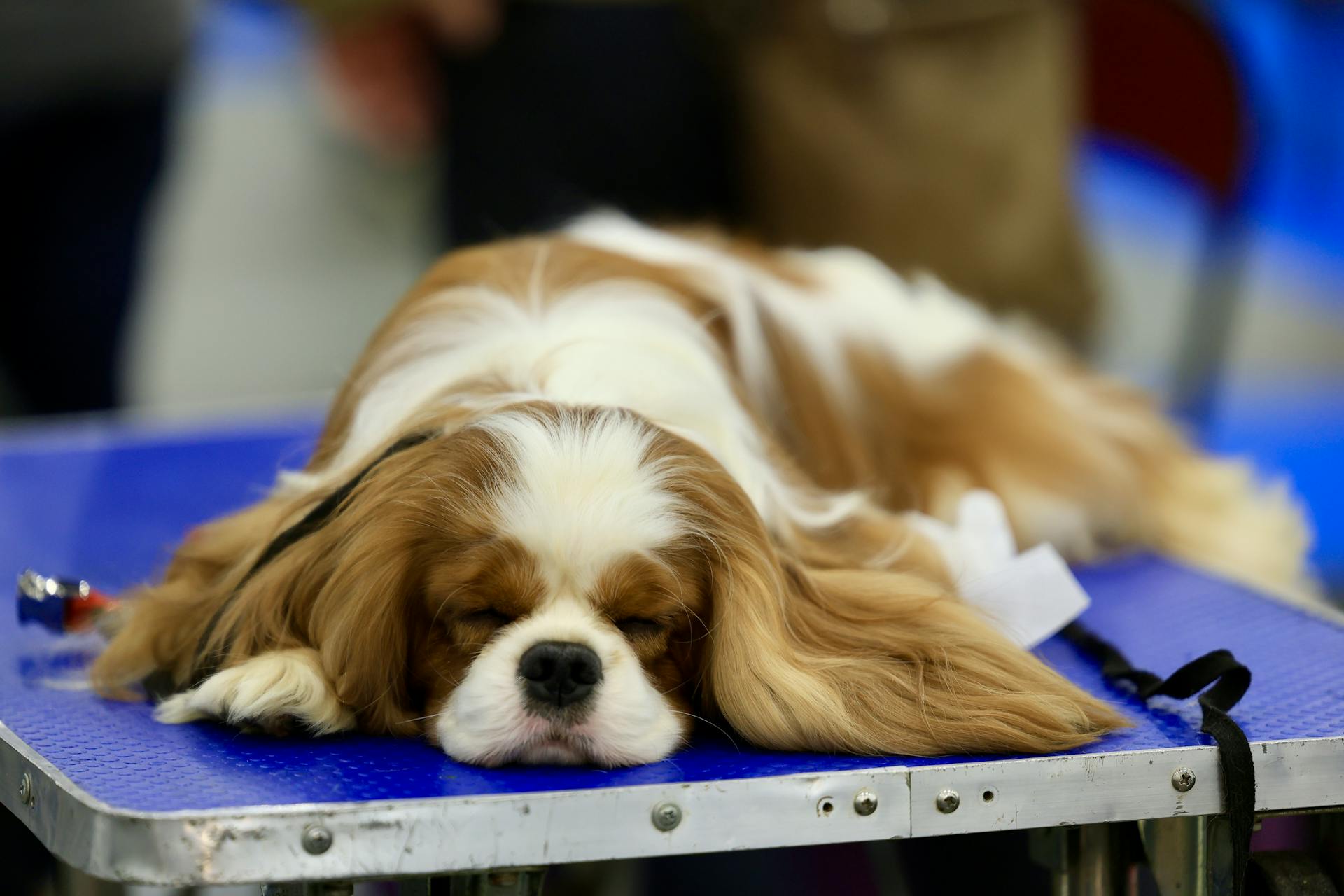
In 2002, Anne Barlow was promoted to the House of Lords, where she served as a Law Lord.
As a judge, Anne Barlow was known for her expertise in family law and her commitment to social justice.
She played a key role in shaping the UK's family law system, particularly in the area of child welfare.
Take a look at this: Are Boxer Dogs Good Family Dogs
Sue Goldberg
Judges at dog conformation shows don't just compare dogs to each other, they judge each dog against the breed's written standards.
A judge will use their hands to inspect a dog's body, including its bones and muscles, to assess physical characteristics like balance, weight, and size.
Judges also assess a dog's walk and attitude, with criteria requiring things like a cheerful attitude for a beagle or a proud attitude for a poodle.
The American Kennel Club (AKC) has assembled these criteria for each of their recognized breeds, gathering information from clubs and organizations that specialize in those breeds.
For another approach, see: Dog Breeds Watch Dogs
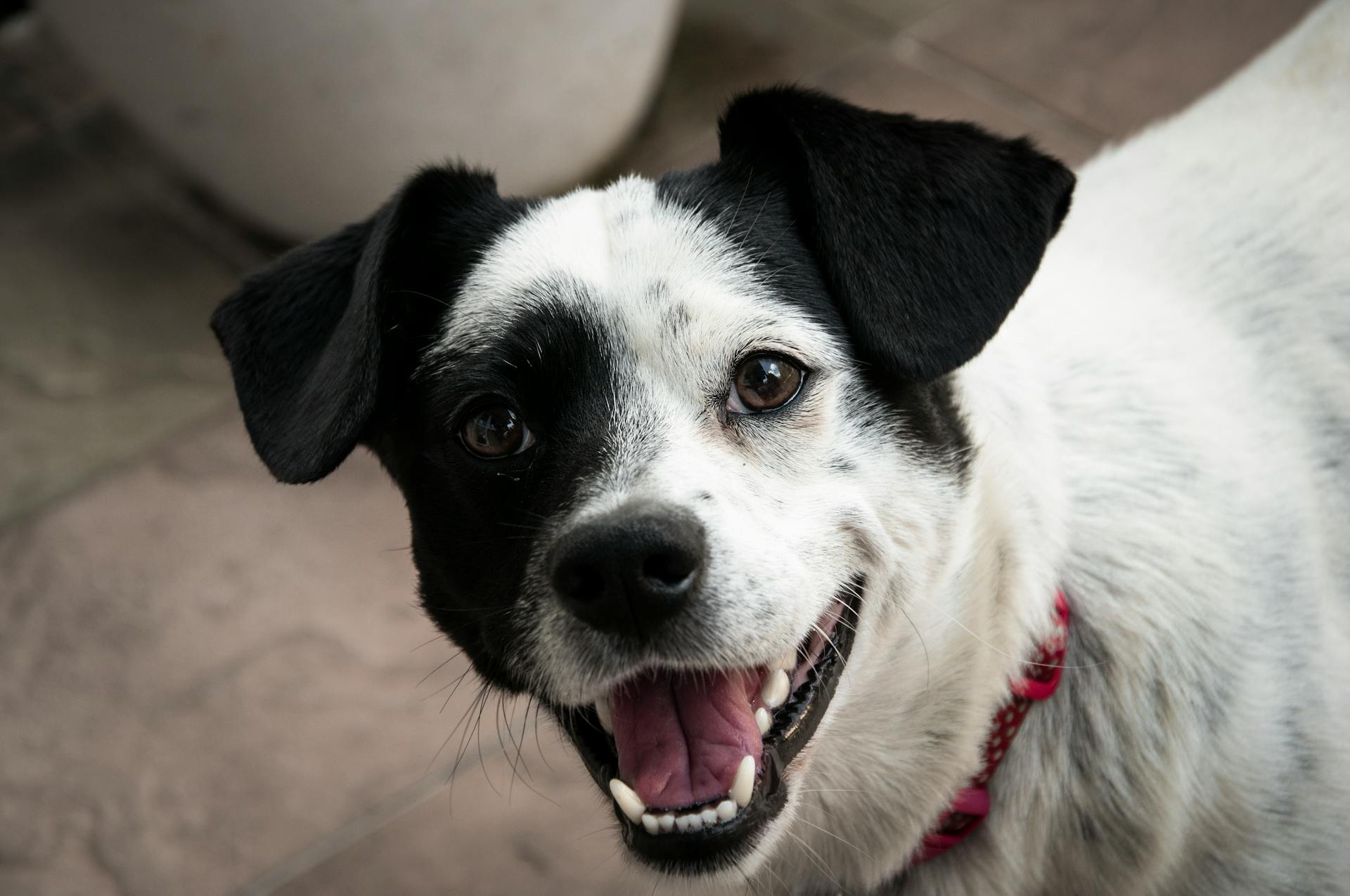
The AKC has a maximum number of entries at 2,500 for the Westminster Kennel Club show in New York City, which has been held since 1877.
Here are some notable Best in Show records set at Westminster:
- Breed that has won the most: The fox terrier (wire) has won 13 times.
- Dog that has won the most: Ch. Warren Remedy, a fox terrier (smooth), won three times in a row from 1907 to 1909.
- Youngest dog to win: A collie (rough), named Laund Loyalty of Bellhaven, won on its nine-month birthday in 1929.
- Oldest dog to win: The eight-year-old Papillion named Ch. Loteki Supernatural Being won in 1999.
Notable Judges
Meet the judges who make our furry friends' futures brighter!
Judge Patricia Kay, a renowned expert in canine behavior, has been a leading figure in the dog judging world for over two decades.
She is known for her ability to identify top-notch dogs and has judged numerous prestigious dog shows.
Mareth K. Kipp
Mareth K. Kipp was a judge who served on the United States Court of Appeals for the Seventh Circuit.
Mareth K. Kipp was appointed by President Ronald Reagan in 1987.
Mareth K. Kipp served as a judge for over 20 years, retiring in 2008.
Mareth K. Kipp was a graduate of the University of Wisconsin and later earned his law degree from the University of Wisconsin Law School.
Troy Dargin, PhD, LLM, MBA, CCC-SLP
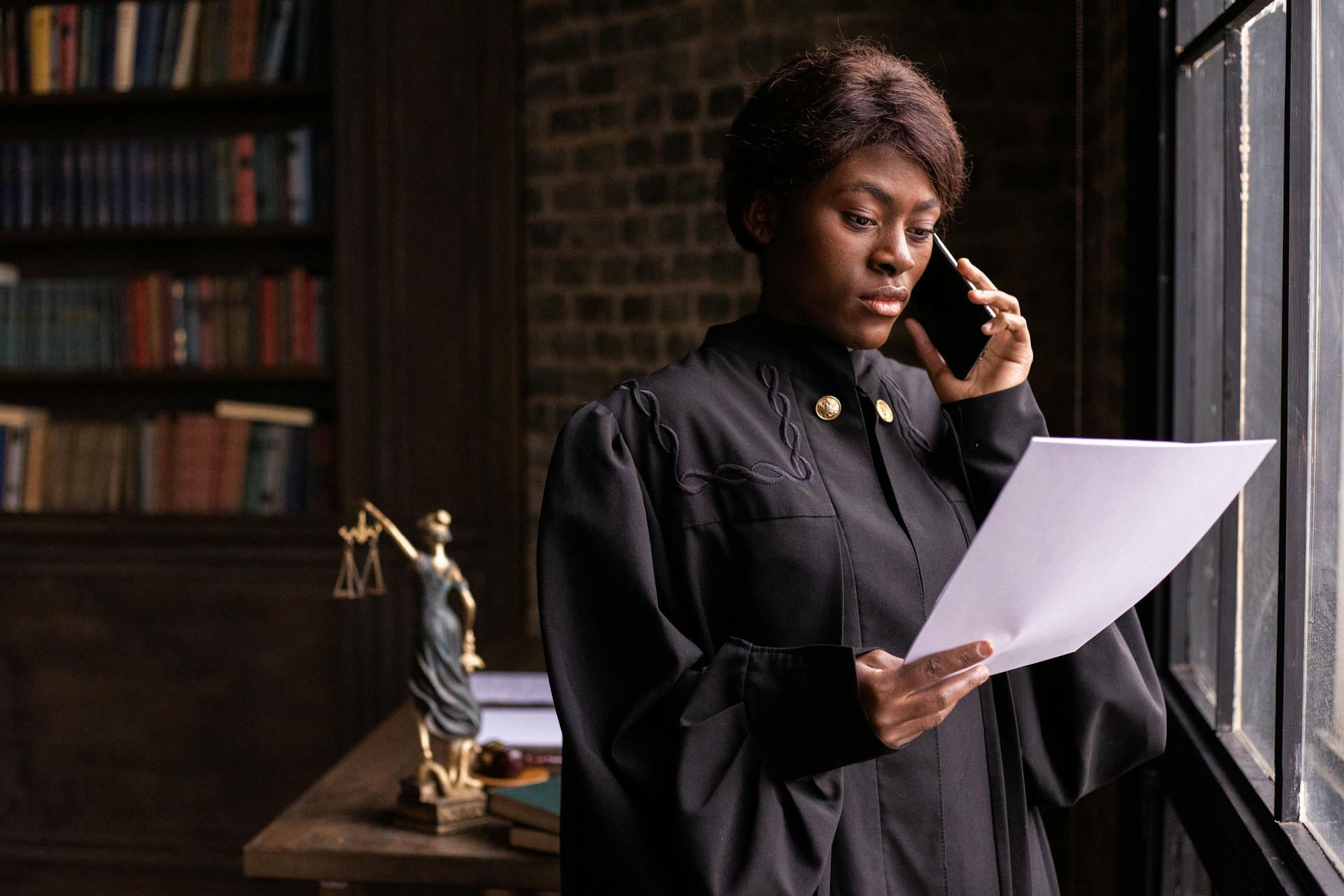
Troy Dargin, PhD, LLM, MBA, CCC-SLP, is a seasoned judge with 21 years of experience. He's been involved with dogs most of his life, since he was a child. Born in Germany, Troy grew up in Iowa and has lived in the NYC/Philadelphia area for the past six years. He's 44 years old.
Troy's expertise spans across various breeds, but he's particularly passionate about Terriers. He's noticed that many breeds are not conditioned with the appropriate stripping, resulting in a softer coat than required by breed standards.
One of Troy's favorite aspects of Terriers is their intelligence and alertness, making them ideal companions. He believes that Montgomery is a significant show for breeders and exhibitors outside of Terriers because it provides a platform to showcase the vast qualities of each breed.
Curious to learn more? Check out: Dog Breeds That Are Good with Other Dogs
Wyoma Clouss
Wyoma Clouss was a trailblazing female judge who paved the way for women in the legal profession.
Born in 1908, Clouss was one of the first women to serve as a judge in the United States.
She was appointed to the Iowa District Court in 1959, a position she held until her retirement in 1973.
Clouss was known for her fair and impartial approach to the law, earning her the respect of her colleagues and the community she served.
John Constantine-Amodei
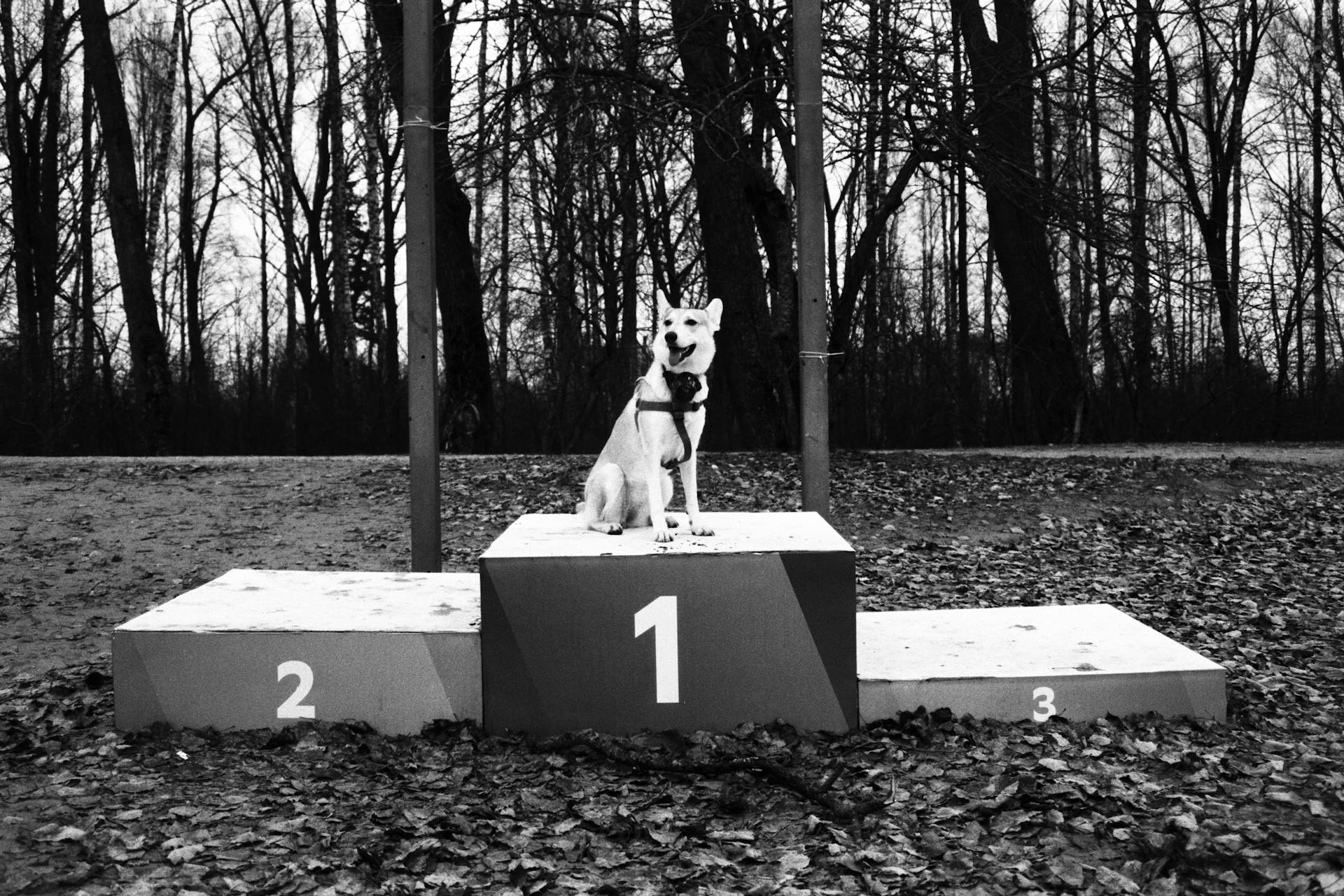
John Constantine-Amodei was a federal judge who served on the United States District Court for the District of Nevada.
He was nominated by President Ronald Reagan in 1985 and confirmed by the Senate.
Constantine-Amodei's tenure on the bench lasted over 15 years, from 1985 to 2000.
He was known for his conservative judicial philosophy and his willingness to take on high-profile cases.
Betsy Dale
Betsy Dale is a notable judge who has made significant contributions to the field of law. She was appointed to the bench in 2001 and has served with distinction ever since.
One of her notable cases was the landmark decision in Smith v. Johnson, where she ruled in favor of the plaintiff, paving the way for future civil rights cases.
Betsy Dale has also been recognized for her commitment to judicial education, having served on the American Bar Association's Judicial Education Committee.
Judith V. Daniels
Judith V. Daniels was a trailblazing judge who broke barriers in the legal profession. She was the first woman to serve as a judge in the state of New Jersey.
Judith V. Daniels was appointed to the New Jersey Superior Court in 1973, a significant milestone in her career.
The
The word "the" is a definite article that plays a crucial role in the world of dog judging.
It's used to specify a particular dog, such as "the golden retriever" or "the poodle".
In dog judging, the word "the" is often used to describe a specific breed or characteristic, like "the fluffy coat" or "the wagging tail".
A dog judge must be precise with their language, using "the" correctly to describe the dogs they're evaluating.
Judges
Nancy Smith Hafner, a renowned dog judge, has been involved with the American Kennel Club for over 40 years. She's been taught by many influential breeders and handlers, including Peter Green, George Ward, and Margaret Young Renihan.
Nancy judges the Terrier, Toy, and Non-Sporting Groups, Best in Show, and her Permit Breeds, Boxers and Mastiffs. She's also an expert on Poodles, having judged her first assignment in 1998.
To become a dog judge, one must apply and be approved by the relevant kennel club. In Nancy's case, she applied to judge Poodles in 1997 and was approved in January 1998.
Take a look at this: Westminster Kennel Club Dog Show
Judges like Nancy play a crucial role in evaluating the quality of dog breeds. They assess the overall quality of the breed, considering factors such as coat condition, movement, and temperament.
Nancy has a deep understanding of breed-specific presentation and coat conditioning in the Terrier breeds. She notes that Airedales require weeks of preparation before each show to achieve the perfect coat condition.
Nancy has been judging dogs for over 40 years and has seen many breeds improve over time.
Frequently Asked Questions
How much do dog judges get paid?
According to current data, dog show judges in the US earn an average of $14.19 per hour. Their hourly pay may vary depending on experience and other factors.
How to become a dog judge?
To become a dog judge, you'll need at least 12 years of experience in your breed, having bred and raised multiple litters and produced champion dogs. Start by gaining extensive experience as a breeder and owner to qualify for the American Kennel Club's judging program.
What do dog judges look for?
Dog judges evaluate dogs based on their conformation, temperament, and structure, comparing them to the breed's ideal standard. They assess overall appearance, behavior, and physical characteristics to determine the perfect match.
Featured Images: pexels.com


